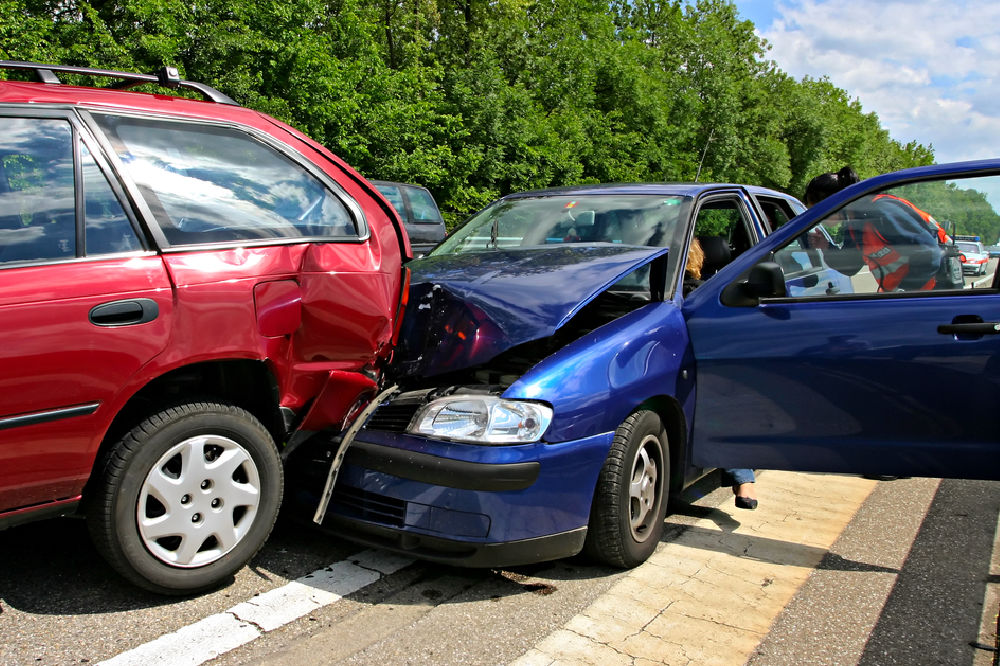It’s a commonly accepted fact that leaving the scene of an car accident in Indiana without stopping to see if anyone has been injured or killed is not only morally reprehensible but also illegal. Unfortunately, hit-and-run accidents are all too common; they occur an average of more than 2,000 times each day in the United States. In 2020 alone, Indiana experienced 24,892 hit-and-run accidents, which averaged out to 68 per day.
As you would expect, leaving the scene of an accident is a felony if anyone has been injured or killed. Indiana Motor Vehicles Code 9-26-1-1.1 clearly states the legal requirements for drivers in our state.
If you are involved in an accident, you must:
- Stop your car at the scene. If this is unsafe or your car would be obstructing traffic, you should move it, staying as close to the scene as possible. (Moving your vehicle for this reason is not considered to be leaving the scene of the accident.)
- Render assistance to anyone at the scene who is injured or trapped. This doesn’t mean that you are required to lift a car or make your way through flames. “Rendering assistance” may simply mean calling 9-1-1 and requesting an ambulance.
- Report the accident to the police (unless the other driver has already done so). If the accident is serious, call 9-1-1, but if it seems minor and no one is injured, you can report the accident to the non-emergency number for the police department.
- Exchange your name, address, vehicle registration, and license details with the other driver.
Penalties
- The consequences of leaving the scene of an accident after causing serious, catastrophic, or fatal injury while being intoxicated (a level 3 felony) is 10-30 years of imprisonment plus a fine of up to $10,000.
- The penalty for leaving the scene of an accident after causing death or catastrophic injury (a level 4 felony) is 2-12 years of imprisonment plus a fine of up to $10,000.
- The penalty for leaving the scene of an accident after causing serious injury (a level 6 felony) is 6 months – 2.5 years and a fine of up to $10,000.
- The penalty for leaving the scene of an accident after causing bodily injury (a Class A misdemeanor) is up to 1 year of imprisonment and a fine of up to $5,000.
What about leaving the scene of an accident in indiana with no injuries?
- Technically, you would not be committing a felony by leaving an injury-free accident scene, but you could be committing a misdemeanor.
- The penalty for leaving the scene of an accident that caused no injuries but which caused property damages of $1,000 or more (a Class B misdemeanor) is up to 180 days of imprisonment and a fine of up to $1,000.
- If public property (such as a guard rail) is damaged (other than the two vehicles involved in the collision), you are required to report the accident.
- If you damage an unoccupied car and can’t find the driver, you must report the accident. If you don’t report it to the property owner or police, you have committed a Class B misdemeanor.
- Even leaving the scene of a single car accident is against the law. You must make an attempt to contact the owner of any property that has been damaged.
In summary, you must report the accident if property damages equal $1,000 or more. This is where things become murky. You may make an estimate at the scene, but you have no way of knowing definitively how much it will cost to fix your car or the other car. Hint: Even minor repair costs can mount up, and they always cost more than you think they will.
Even though it may be tempting to agree with the other driver not to report a minor accident, you are taking a major risk. Not only could the damage amount to more than $1,000, but you are also leaving yourself without a vital piece of information for your insurance company without a police report.
In many cases, someone who has seemed to be perfectly reasonable at the scene of an accident that he caused goes home and decides to file a personal injury lawsuit against you and claim that you were the one at fault. Is that person actually injured? Maybe, but maybe not. Either way, you need to prove that you were not the at-fault driver. Without a police report, this will be an uphill battle.
Alternatively, you may wake up the morning after your fender bender and realize that you have whiplash and need medical attention. If the other driver’s negligence caused the accident, you will want the security of a police report with the relevant details in case you need to file a claim against that driver’s insurance – or file a personal injury lawsuit.
Crossen Law Firm – Indiana Car Accident Attorneys
Even if it seems that there are no injuries, you should make no assumptions after being involved in a car accident. Leaving the scene of an accident in Indiana is never recommended. Err on the side of caution by reporting the car accident. Injuries may not be apparent until weeks or even months after the crash. At Crossen Law Firm, our Indiana car accident attorneys have the skills and knowledge necessary not only to advise you but also to effectively negotiate with insurance companies to obtain maximum compensation if necessary. Call us at 317-401-8626 for a free consultation. Or contact us online.

 317-401-8626
317-401-8626 
.jpg)